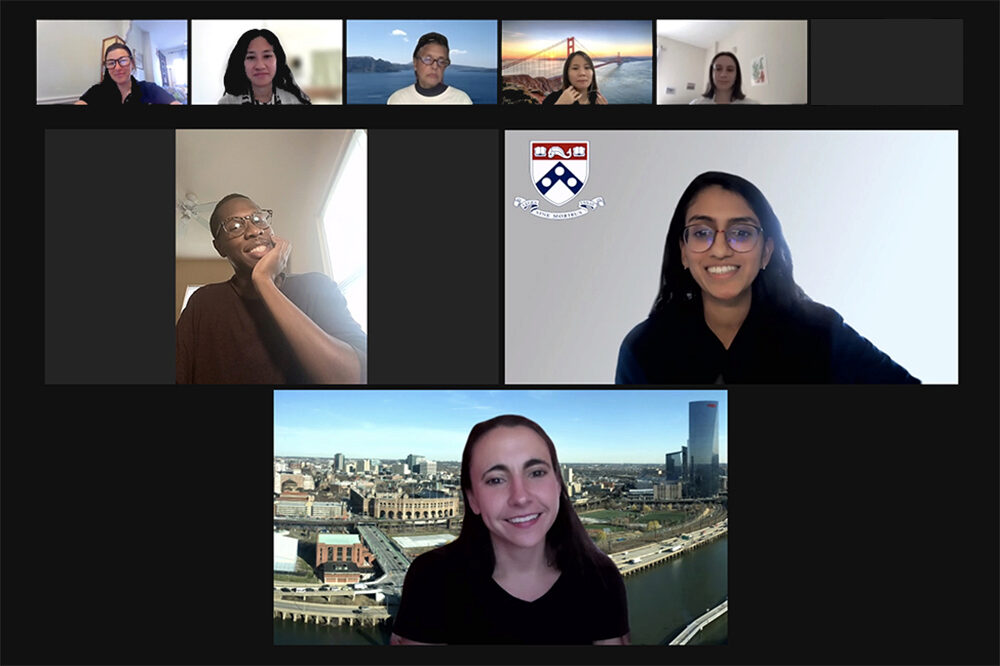In a 2017 report, the National Center for Education Statistics (NCES) found that about 76 percent of post-secondary faculty members in the U.S. were white, compared to 55 percent of undergraduate students. The need for faculty diversity in higher education continues today — but the hard work begins way before the hiring process.
Wharton’s Introduction to Diversity in Doctoral Education and Scholarship program, or IDDEAS@Wharton, is doing so by supporting undergraduate students interested in business research before they even apply for a PhD.
“The premise of IDDEAS acknowledges that higher education has not been an inclusive environment for minorities and women,” said IDDEAS Co-Director Anita Henderson. “Anyone who walks into a classroom can see the issues of faculty diversity here at Wharton, at our peer institutions, and in many other institutions in business education. This is a problem that has existed for generations of minorities and women, built by a combination of resistance to their presence and a lack of access and opportunity in higher education.”
In 2012, Henderson, who was the first Black woman to earn a PhD in Linguistics at Penn, was the Senior Director for Wharton Deputy Dean Michael Gibbons. She and Gibbons, along with her coworkers at Wharton Doctoral Programs and then Vice Dean Eric Bradlow, knew the issue had to be addressed.

Taking the First Step
“I have always stressed the importance of diversity as an integral part of doctoral training,” Bradlow said. “To me, this meant traditional measures of diversity in gender, race, background, and culture, but also diversity of thought. IDDEAS was, at first, an aspirational goal to be able to bring diversity to doctoral education in business where it is desperately needed.”
Since launching in 2012, the program has fine-tuned a two-day agenda where participating scholars can chat with doctoral students and Wharton faculty about their experiences, learn about the research being produced at Wharton, and collaborate on a research exercise with other scholars.
While many similar pipeline programs in higher education focus on numbers, IDDEAS selects 12–15 applicants every year to provide them the individual attention they need.
Many of the visiting student speakers are IDDEAS alumni, like Tanya Paul, W’15, GrW’21. At Wharton, she’s currently studying the economics of information disclosure and how accounting information affects bank behavior.
“I remember one student shared her essay with us and explained the elements of what made for a successful application essay,” said Paul, a member of the inaugural cohort in 2013. “I took everything I learned during IDDEAS, and I think that knowledge definitely showed in my application.”

Enriching Doctoral Education
IDDEAS is now also hosted annually at Kellogg/Booth, Stanford, and MIT Sloan. As of 2021, there are 18 IDDEAS scholars studying in PhD programs across the country and globally. Two scholars have earned their doctorates, and one holds a faculty position.
“Those numbers may sound small, but a PhD program is incredibly personal,” said Co-Director Maggie Saia. She has been Associate Director of Wharton Doctoral Programs since 2011 and the driving force in implementing IDDEAS at peer institutions. “IDDEAS is meant to be a discovery program. We want students to get closer to answering the question, ‘Is a PhD and a career in business research and academia right for me?’”
For Nancy Zhang, current vice dean of Wharton Doctoral Programs, IDDEAS plays a central part in Wharton’s vision to further diversify doctoral education and enrich the School’s intellectual environment.
“Often, talented students who may excel in graduate school don’t ever think about going because no one told them what it is about,” she said. “IDDEAS lets them know that if they want it and work hard, it is within their reach.”
Keeping the Door Open
As a woman working in a male-dominated field herself, Zhang said, “I think it’s important for younger women to believe in themselves. This comes from seeing the successes of other women — graduate students, postdocs, faculty members — and hearing their stories.”
Zhiying (Bella) Ren, GrW’25, a Wharton PhD candidate investigating the role of interpersonal judgments in conversations, treasures her 2019 IDDEAS cohort. “While we came from completely different backgrounds, we shared the same passion for exploring our intellectual curiosities,” she said. “I also got to work with many doctoral students. These doctoral students have now become my colleagues, friends, and the upperclassmen I look up to.”

“Building a close network of colleagues and mentors is critical in a PhD program, and we try to create those connections early on during IDDEAS,” Saia said. “When students know your door is open, and you’re rooting for them, it makes a difference.”
While women and Asian scholars have made comparatively more progress in higher education, it will take a much longer time to truly even the playing field.
Saia said the goal is for programs like IDDEAS to help build a rich, cultural diversity among faculty. “I’d like to think that IDDEAS, as it is currently conceived, will be obsolete one day because the representation, inclusion, and parity we support will be integral to institutions.”
“We are focused on culture rather than numbers,” Henderson added. “The numbers are not the issue. The policies, practices, and climate for minorities and women as faculty are. If the climate changes, the numbers will follow.”
— Gloria Yuen
Posted: April 22, 2021


















